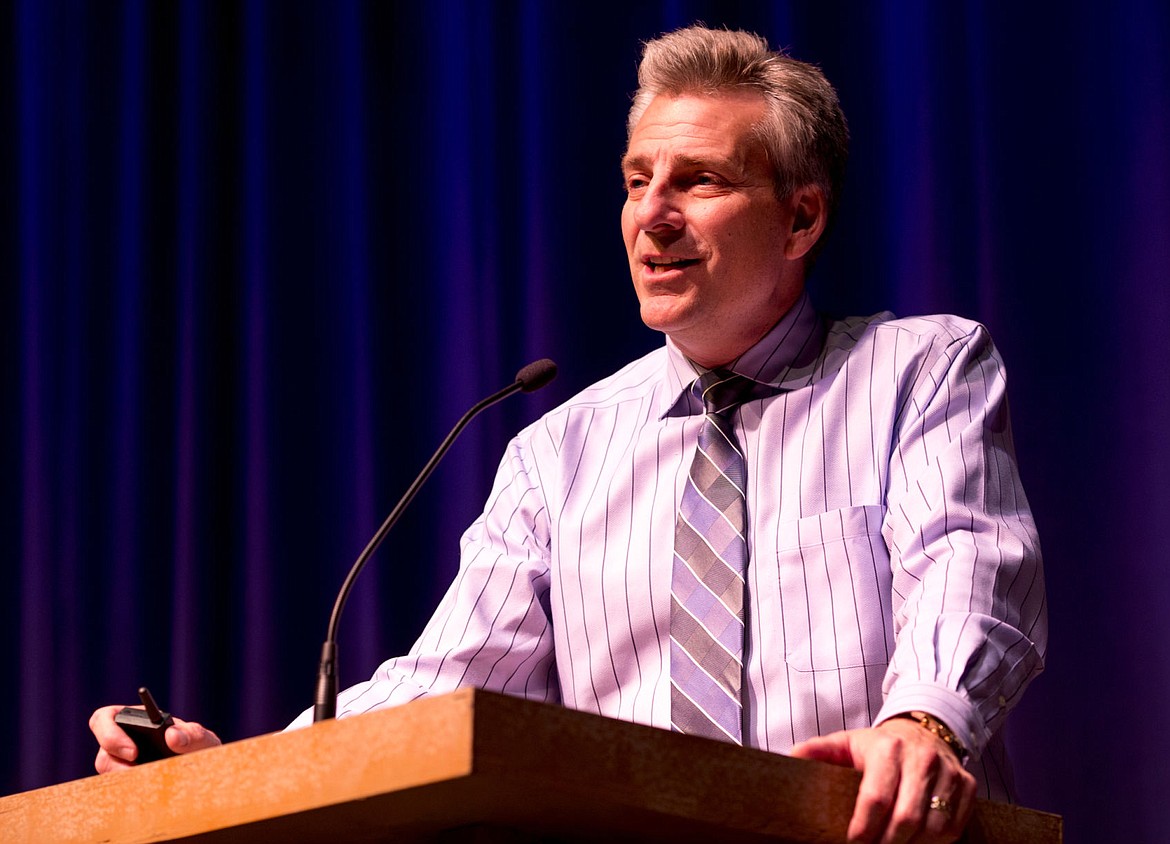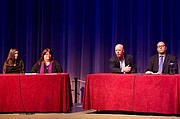Expert: Incivility far from rock bottom
COEUR d’ALENE — Incivility isn’t a cause of division in American society.
It's a symptom.
"People become more uncivil because they get passionate about politics because politics matter to them," Dr. Cornell W. Clayton said. "We have deep divisions and people care passionately about this, and that’s what produces incivilities.
"Political incivility is everywhere."
Clayton, director of the Thomas S. Foley Institute for Public Policy and Public Service at Washington State University, was keynote speaker Thursday during a day-long conference at North Idaho College. The event, titled "Returning Civility to America's Democracy: The Promotion of Civil Dialogue," examined the state of civility in American politics and the relationship between incivility and democracy.
Clayton described it as an "incivility crisis." He said the incivility — name-calling, poor manners, lack of respect and other unsavory actions and behaviors — of modern politicians and their supporters is not exclusive to today.
“It’s probably not going to be a relief for many of you to know that as bad as our civil incivility is today, it was worse in the past," he said to the audience in Schuler Performing Arts Center. "Way worse."
Plenty of mudslinging occurred between Thomas Jefferson and John Adams during the campaign of 1800. Deep personal attacks were used against John Quincy Adams and Andrew Jackson during the election of 1828. Some of the most beloved presidents suffered from heavy negativity during their campaigns, including Abraham Lincoln and Franklin Roosevelt.
"President Roosevelt was called every name in the book — communist, socialist, fascist, dictator,” Clayton said.
Clayton said the United States has not been as polarized yet closely divided as it is now — during the election season of Hillary Clinton v. Donald Trump — since the 1890s, when moral and economic issues split the nation.
He said these points in history when presidential elections are intense and polarization is high are "critical junctures in democratic development," when people feel incredibly strong about the issues.
These ardent political feelings boil over into how people interact and judge one another.
"What's driving us apart from each other in terms of how we think about these issues is our social identities in terms of our partisanship," Clayton said.
Following Clayton's presentation, 14 religious, political and community leaders spent about 10 minutes each at the podium, addressing the issue of incivility in just about every aspect of American life while presenting constructive solutions for creating a nicer, more respectful society. A panel of media representatives also took the stage for about an hour to answer audience member questions.
Rev. Craig Sumey, pastor of the First Presbyterian Church in Coeur d'Alene, discussed "speaking the truth in love." He used the "Mary Poppins" song, "A Spoonful of Sugar," to illustrate the importance of speaking with kindness.
"When we are speaking the truth and it is accompanied by love, it makes that truth easier to swallow," he said.
Rabbi Tamar Malino of the Temple Beth Shalom, Spokane, shared stories from the Talmud and spoke of "an argument for the sake of Heaven" and the value of humility; how it's important to value one another's opinions even if both parties disagree.
Idaho Rep. Luke Malek tackled issues of racism and generational divide while Kootenai County Prosecutor Barry McHugh used a little humor to emphasize the power of language and the deep offense some feel in the presence of profanity.
Coeur d'Alene Mayor Steve Widmyer encouraged people to "walk in others’ shoes" and understand scenarios from other perspectives.
Representing the Islamic Faith Community, Admir Rasic of Spokane shared his sentiments about Islamophobia being at an all-time high and urged people to open a dialogue with their communities denouncing anti-Muslim rhetoric.
Coeur d'Alene Tribe Chairman Chief Allan shared how important it is to raise children to "be people first." He also expressed the need for politicians to hold themselves to higher standards.
"At the end of the day, we have politicians and we have leaders," Allan said. "We need to demand our politicians to be leaders."
NIC student Lexie Levesque, 17, attended an afternoon portion of the conference.
"I thought it was really good," she said. "It definitely made me think a little bit more about our politics and some issues that we as a country need to focus on more."
The civility conference was hosted by the NIC Office of Student Services, NIC Diversity Council, Associated Students of NIC and the Kootenai County Task Force on Human Relations.



